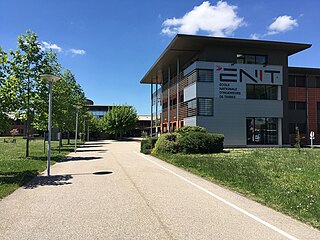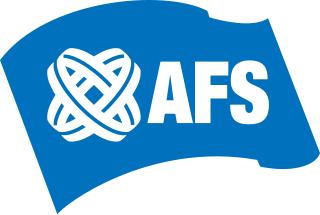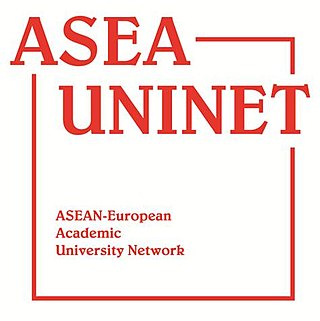Objectives and Tasks
The main activity of CEEPUS are networks of eligible universities of the CEEPUS member states operating joint programs. Within these networks CEEPUS covers mobility grants for students and teachers of those eligible universities. Since 1995 approximate 75.000 mobility applications have been awarded in the framework of our program. Current member countries: Albania, Austria, Bosnia and Herzegovina, Bulgaria, Croatia, the Czech Republic, Hungary, North Macedonia, Moldova, Montenegro, Poland, Romania, Serbia, the Slovak Republic and Slovenia. Prishtina/Kosovo is also participating.
History
As is so often the case in Austria, the first fundamental decisions were made at a Heuriger, more precisely, at the Heuriger on the occasion of the first Erasmus Day in 1992. What excited the minds: 1989 had been wonderful, but meanwhile the traditional means of academic cooperation had become got lost. So how do we continue to work together with the states of the former Eastern Bloc? And you didn't need new forms, because the "Eastern Aid" of the first years after the fall of the Wall had done its duty and had become obsolete. And speaking of Erasmus: Austria was just starting to take part, but who knew exactly when the partners in Eastern Europe were finally allowed to take part? It couldn't cost a lot either, and the administrative effort should be as low as possible.
This gave rise to the bold idea of developing a Central and Eastern European, regional university exchange program. Then everything happened very quickly: the decision was officially made at a regional ministerial conference in Graz in November 1992, and the first high-level conference of officials took place in Vienna in February. The name "CEEPUS" - Central European Exchange Program for University Studies "was born. The six founding states emerged from the group of invited participants: in addition to Austria, Bulgaria, Poland, Slovakia, Slovenia and Hungary. The provisional CEEPUS General Secretariat started its work and coordinated the establishment of the CEEPUS I Treaty. Then the big moment: the signing on December 8th, 1993 in Budapest.
Organizational Structure
CEEPUS is based on lean management. The highest-ranking decision making CEEPUS body is the Joint Committee of Ministers that meets once a year and takes all strategic decisions.
CEEPUS is based on lean management. The highest-ranking decision making CEEPUS body is the Joint Committee of Ministers that meets once a year and takes all strategic decisions.
Joint Committee of Ministers
The Joint Committee of Ministers is the highest CEEPUS body. It meets every other year and takes all basic decisions, such as accepting new member states by unanimous invitation, deciding on further program development and taking any other major decision. And of course, the Joint Committee of Ministers is in charge of the CEEPUS budget and the CEEPUS internal currency, which is “1 scholarship month”, defined as a full scholarship according to the local standard of living. Each year all countries pledge the number of incoming scholarship months they will make available for the next academic year. The Joint Committee of Ministers is presided by one of its members, elected as CEEPUS Chair. The current CEEPUS Chair is Poland.
Senior Officials´ Meeting
The Senior Officials´ Meeting convenes every year and deals with all technical decisions and current issues vital for the wellbeing of our program. Senior Officials are officials in charge of CEEPUS and with decision making power.
CCO (Central CEEPUS Office)
The Central CEEPUS Office (CCO) in Vienna is responsible for the overall coordination of the program.
NCO (National CEPUS Office)
Each country has a National CEEPUS Office (NCO) in charge of the national implementation of the Program. If you are interested in establishing a new university network, your National CEEPUS Office is the first contact point for information regarding the program and your guest country.
With CEEPUS, there is no direct transfer of funds. Each country pays its INCOMING students and teachers and has to pledge at least 100 scholarship months per academic year. The CEEPUS Agreement also specifies that these grants be comprehensive grants linked to the local cost of living.
EXCHANGE
Duration of stays:
Students: scholarships for regular semester activities shall be awarded for a minimum of 3 months and a maximum of 10 months.
Short term students: Shorter stays shall only be permitted for students working on
their theses or dissertations.
Short Term Excursions and Summer Schools which may be shorter than a month and may also be attended by undergraduates.
Teacher: if you are a teacher, please always choose ONLY THIS category, no matter for how long you want to stay
Grant Rates
The individual monthly grant rate is dependent from your host country and may vary. See the national CEEPUS Office of your target country for current rates
In some CEEPUS countries scholars will get extra outgoing reimbursement for their stay. Ask the National Office of your home country.
AIESEC is an international youth-run and led, non-governmental and not-for-profit organization that provides young people with leadership development, cross-cultural internships, and global volunteer exchange experiences. The organization focuses on empowering young people to make a progressive social impact. The AIESEC network includes approximately 40,000 members in 120+ countries.
The Fulbright Program, including the Fulbright–Hays Program, is one of several United States Cultural Exchange Programs with the goal of improving intercultural relations, cultural diplomacy, and intercultural competence between the people of the United States and other countries through the exchange of persons, knowledge, and skills. Via the program, competitively-selected American citizens including students, scholars, teachers, professionals, scientists, and artists may receive scholarships or grants to study, conduct research, teach, or exercise their talents abroad; and citizens of other countries may qualify to do the same in the United States.

The Erasmus Programme is a European Union (EU) student exchange programme established in 1987. Erasmus+, or Erasmus Plus, is the new programme combining all the EU's current schemes for education, training, youth and sport, which was started in January 2014.

A student exchange program is a program in which students from a secondary school or higher education study abroad at one of their institution's partner institutions. A student exchange program may involve international travel, but does not necessarily require the student to study outside their home country.
The Europaeum is a network of nineteen universities in Europe. It was conceived of in 1990–1991 by Lord Weidenfeld and Sir Ronnie Grierson and they persuaded Roy Jenkins, who had just become Chancellor of the University of Oxford, to push this initiative in conjunction with the universities of Leiden, and Bologna. It has subsequently been supporting the "advancement of education through the encouragement of European studies in the University of Oxford and other European institutions of higher education having links with Oxford."

The International Association for the Exchange of Students for Technical Experience commonly referred to as IAESTE is an international organization exchanging students for technical work experience abroad. Students gain relevant technical training lasting from 4 weeks to 52 weeks. IAESTE includes committees representing more than 80 countries, with the potential of accepting new countries into the organization every year. At the general conference 2005 held in Cartagena, Colombia, the statute and by-laws of IAESTE a.s.b.l. were established, making IAESTE a registered "associacion sans but lucratif", with the centre in Luxembourg. The current President is Thomas Faltner from Austria. IAESTE's motto is "Work, Experience, Discover". IAESTE's aims are to connect students with employers in foreign countries, provide university students with technical experience and culturally enrich students and their host communities.
In the European Union education is at the responsibility of its Member States and their Ministries of education that they have; in such, the European Union institutions play only a supporting and overseeing role. According to Art. 165 of the Treaty on the Functioning of the European Union, the Community
shall contribute to the development of quality education by encouraging cooperation between Member States, through actions such as promoting the mobility of citizens, designing joint study programmes, establishing networks, exchanging information or teaching languages of the European Union. The Treaty also contains a commitment to promote life-long learning for all citizens of the Union.

Universidade Autónoma de Lisboa is a private university located in Lisbon, the capital of Portugal. UAL was founded on December 13, 1985.
The Council on International Educational Exchange (CIEE) is a non-profit organization promoting international education and exchange. It was founded in 1947 and is based in the United States. The organization is headquartered in Portland, Maine.
University Mobility in Asia and the Pacific (UMAP) is a voluntary regional association of government, non-government and/or university representatives of the higher education sector established in 1993 to enhance cooperation and exchange of people and expertise through increased mobility of higher education students and staff. UMAP has been endorsed by Asia-Pacific Economic Cooperation and member countries are implementing UMAP projects.

The Balassi Institute is a worldwide non-profit cultural organization funded by the Ministry of Foreign Affairs (Külügyminisztérium) of Hungary. The institute spreads and promotes Hungarian language and culture abroad, and plays a key role in developing and attaining Hungary's objectives in the area of cultural diplomacy. As an organizational hub, it coordinates and directs all activities provided by Hungarian institutes abroad.
It is named after the Hungarian Renaissance lyric poet Bálint Balassi.

The École nationale d'Ingénieurs de Tarbes - ENIT is a French school of engineering leading to the French “Diplôme d'Ingénieur” under the authority of the French Ministry of Education and Research and part of the National Polytechnic Institute of Toulouse (INPT). Founded in 1963, about 200 students graduate from the ENIT each year.
ENIT is part of the ENI group, which is a network of 4 French public engineering schools.

KLU - Kuehne Logistics University is a state-recognized business school and university based in Hamburg, Germany. It was founded by the Kuehne Foundation, based in Schindellegi, Switzerland, which supports education and research in logistics, supply chain, and operations management.

Austria–India relations or Indo–Austrian relations are the international relations that exist between Austria and India.

AFS Intercultural Programs is an international youth exchange organization. It consists of over 50 independent, not-for-profit organizations, each with its own network of volunteers, professionally staffed offices, volunteer board of directors and website. In 2015, 12,578 students traveled abroad on an AFS cultural exchange program, between 99 countries. The U.S.-based partner, AFS-USA, sends more than 1,100 U.S. students abroad and places international students with more than 2,300 U.S. families each year. More than 424,000 people have gone abroad with AFS and over 100,000 former AFS students live in the U.S.
EUF - Campus Europae is a European network which aims at the promotion of high quality student mobility and contributing to educating a generation of European graduates with an innate understanding of Europe’s unity in diversity. The project is under the patronage of the Government of the Grand Duchy of Luxembourg and its secretariat is in Oetrange.
An academic mobility network is an informal association of universities and government programs that encourages the international exchange of higher education students.

The ASEAN European Academic University Network (ASEA-UNINET) is a network of universities, consisting of European and south-east Asian universities. It was founded in 1994 by universities from Austria, Indonesia, Thailand and Vietnam with the goal of promoting the continuous internationalisation of education and research. Today ASEA-UNINET consists of 83 universities from 17 different countries.

Thailand–Turkey relations are the modern foreign relations between Thailand and Turkey. The cordial relations between the two countries date back to 1958, when the two countries established diplomatic relations. Shortly after, Turkey set up its embassy in Bangkok. Thailand reciprocated by opening its embassy in 1972. However, even during the era of the Ottoman Empire, there had been historical contacts between the Empire and Siam at the time -- most notably the visit of Prince Damrong, younger brother of King Chulalongkorn the Great of Siam, to Istanbul as the royal guest of Sultan Abdul Hamid II in 1891.
Faculty of Economics Brčko (EFB) is one of the educational institutions of the University of East Sarajevo.










